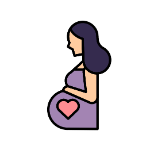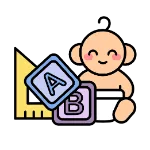
Antenatal Education
Pre And Postnatal Physiotherapy: Preparing Your Body For Childbirth, Recovery And Getting Back In Shape
8 min | Updated on 04-05-2023 by HappyPreggie
(Image credits to Smart Parents)
Pregnancy and childbirth are beautiful journeys for women, but they also come with significant physical changes. As the baby grows inside, a woman's body must adjust to the shifting centre of gravity, increased weight, and added pressure on organs. Unfortunately, these changes can lead to various complications that can be quite uncomfortable.Did you know that over two-thirds of pregnant women experience back pain, while one-fifth suffer from pelvic pain? And if that's not enough, over 40% of women also have to deal with urinary incontinence during their first pregnancy! Even worse, half of these women continue to have the condition until 8 weeks after delivery, while one-third experience a new onset of incontinence after giving birth.
The good news is that these symptoms are not normal, but rather a common occurrence that can be treated and prevented. If left untreated, they can worsen over time, but with the help of pre and postnatal physiotherapy, women can receive the support and care they need to feel comfortable and confident throughout their pregnancy and beyond.
What Is Pre and Postnatal Physiotherapy?
Pre and postnatal physiotherapy is a form of physical therapy designed specifically for women during and after pregnancy. This type of therapy involves exercises, education, manual therapy, and advice to improve the physical wellbeing of both mother and baby. While pregnant, pre and postnatal physiotherapy can help ease discomfort, improve posture, and prepare the body for childbirth. After childbirth, it can speed up recovery, relieve pain, and address issues such as diastasis recti and pelvic floor dysfunction.
During a pre and postnatal physiotherapy session, the physiotherapist will conduct a thorough evaluation of the woman's physical condition, including her musculoskeletal and pelvic health. Based on the results, a personalised treatment plan will be created that may include exercises to strengthen the pelvic floor muscles, improve core stability, and increase mobility. Additionally, the therapist may also provide guidance on safe exercises and activities to do during pregnancy and postpartum, as well as offer advice on managing pain, improving posture, and practising proper breathing techniques.
Why You Need Pre and Postnatal Physiotherapy
- Improves pelvic floor function
- Reduces back pain
- Helps prepare for childbirth
- Speeds up postpartum recovery
- Provides emotional support
Common Conditions That Require Physiotherapy During And After Pregnancy
i. Diastasis Recti
(Image credits to Alpine Physical Therapy & Spine Care)
Diastasis recti is the separation of the abdominal muscles during and after pregnancy.
This condition is extremely common during and after pregnancy, affecting about 60% of people. If left untreated or in severe cases of diastasis recti, you may experience complications like umbilical hernia and an increase in back pain. Thankfully, physiotherapy can help strengthen the abdominal muscles and promote healing.
ii. Pelvic Girdle Pain
Pelvic girdle pain is common during pregnancy and can persist even during postpartum. To alleviate the pain and improve mobility, you can try physiotherapy, which offers exercises and manual therapy.iii. Urinary Incontinence
(Image credits to Everyday Health)
Urinary incontinence, or loss of bladder control, is common during pregnancy and childbirth. However, you need not worry as physiotherapy can help strengthen the pelvic floor muscles and thus improving bladder control.
iv. Lower back pain
During pregnancy, the added weight can cause strain on the lower back. Postpartum, the constant bending and lifting can also lead to lower back pain. Physiotherapy can help alleviate pain and improve mobility through exercises and manual therapy.v. Carpal Tunnel Syndrome
(Image credits to Integrity Physio)
Carpal tunnel syndrome is a common condition in pregnant women, with 31% to 62% experiencing it. Pregnancy-related swelling can lead to CTS, particularly in women with gestational diabetes or hypertension. Physiotherapy, including exercises and manual therapy, can help reduce symptoms by addressing the compression of the median nerve in the wrist caused by fluid retention.
vi. Breastfeeding-Related Conditions
Physiotherapy can also help address breastfeeding-related conditions such as mastitis, blocked milk ducts, and engorgement through techniques such as manual lymphatic drainage and ultrasound therapy.Types of Physiotherapy That Can Benefit Your Motherhood Journey
#1 Antenatal physiotherapy
(Image credits to Physiomobility)
Back and joint pain are indeed a common part of pregnancy, but that does not mean you should just leave it be. With antenatal physiotherapy, you’ll not only get to ease the pain, but also prepare your body for childbirth as it helps improve pelvic floor strength and maintain overall fitness during pregnancy.
#2 Postnatal physiotherapy
(Image credits to Resync Physiotherapy)
While you may wish your pregnancy pain will miraculously disappear after giving birth, it’s not that easy. After childbirth, you may experience issues like weak pelvic floor strength, abdominal separation and the never-ending back pain. Thankfully, there’s something you can do to overcome this, and that’s by getting postnatal physiotherapy, which is designed to help new mothers recover.
#3 Breastfeeding-related physiotherapy
(Image credits to Parents)
We all know by now that breastfeeding is no easy task, so how can you make your journey smoother? We recommend getting a breastfeeding-related physiotherapy, which focuses on addressing any physical issues that may arise from breastfeeding, such as back and neck pain, carpal tunnel syndrome, mastitis and many more.
#4 Diastasis recti physiotherapy
(Image credits to Physio.co.UK)
Estimatedly 60% of pregnant women experience some degree of abdominal separation (diastasis recti) during pregnancy or postpartum recovery. It’s scary to think you may be one of them, but worry not! Many supports are available to help you, one of them being diastasis recti physiotherapy. This type of physiotherapy can help to strengthen the muscles and bring them back together.
#5 C-section recovery physiotherapy
(Image credits to Cloudnine Hospitals)
If you have had a C-section, you’ll know the pain that comes after. Thankfully, now we have the C-section recovery physiotherapy that is specifically designed to help women who have had a caesarean section to recover by addressing issues such as scar tissue, pain, and muscle weakness.
#6 Baby-related physiotherapy
(Image credits to Enrich Physio)
Being a new parent is daunting, and the responsibility that comes with it can make anyone have cold feet. Some physical issues can arise when caring for a new baby, such as back pain from holding or carrying a baby, and you may wonder if caring for your baby means sacrificing your well-being. But worry not! A baby-related physiotherapy will be perfect for you as it focuses on helping parents with these issues.
Pre and postnatal physiotherapy can be highly beneficial for women during and after pregnancy, helping to improve their physical health and quality of life. It is recommended for women who experience musculoskeletal pain, pelvic floor dysfunction, or other physical issues during pregnancy or after childbirth. With the right guidance and support, women can enjoy a smoother pregnancy and postpartum recovery, and better prepare themselves for the challenges of motherhood.
Looking for guidance on maintaining a healthy pregnancy but not sure where to start? Explore our blog post on the 6 casual and safe exercises you can do during pregnancy here!
Join the largest support network for family health and well-being. Ready to get started?
Get started
















